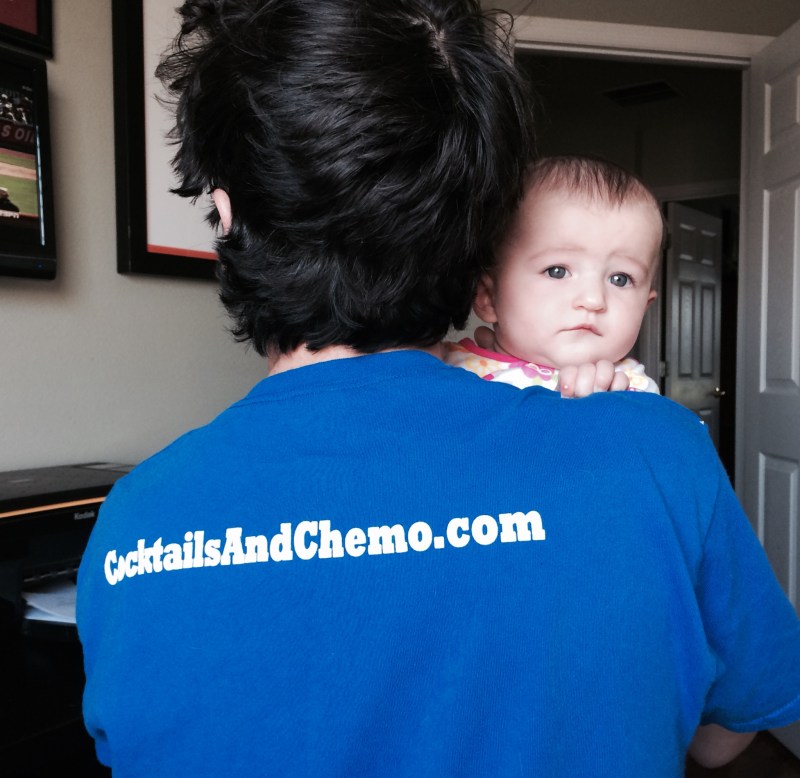What To Say When Someone Has Cancer – Today, 7 teenagers are told they have cancer. Even though it affects everyone (directly or indirectly), the “big C” is still a taboo subject because of the fear surrounding it. Research shows that 87% of patients have lost contact with friends as a result of cancer treatment in young people. If we can just open the dialogue around it, it will help those affected and lead to elimination of risks and early diagnosis.
We contacted designer Emily McDowell as part of our campaign with FVCK CANCER, which works to support people with hair loss due to chemotherapy. Emily was diagnosed with stage 3 Hodgkin’s lymphoma in 2001 when she was just 24 years old. Over the next 9 months of treatment, she watched her family and friends struggle to find the right words. And the sympathy cards he received didn’t help either – from cheesy to cold, nothing spoke to the situation he was in. This prompted him to create his own cliché-free, punchy design. From nauseating humor to sarcasm, Emily’s cards tell it like it is while being compassionate and comforting. Check them out below, along with some tips on what to say to a Cancer.
What To Say When Someone Has Cancer

Our culture doesn’t teach us how to talk about illness, so when it happens to someone in our lives, most of us feel powerless to deal with it. We are afraid of saying the wrong thing, so we hesitate, and then time passes and then we feel even more embarrassed, but now we also feel guilty, which makes it even harder to reach out. But for a Cancer person, it feels incredibly lonely and painful when friends go silent. Remember that no one has ever died in an awkward situation, and if you don’t know what to say, it’s perfectly fine to say so. Your friend doesn’t know how to have cancer either – and what they need most is your offer to just be there.
What To Say When Someone Dies Of Cancer
Being solution-oriented serves us well in everyday life, so when someone we care about gets sick, our first instinct is often to go into “fix it” mode, where we immediately try to offer suggestions to help solve the problem. questions, ideas. But it’s impossible to fix someone’s illness, and you don’t have to.
The most supportive thing you can do for them is to be willing to show up, be present, listen, and if you don’t feel like talking, keep quiet. Silence isn’t inherently awkward, it’s only felt because we’re not used to it. Fortunately, learning to listen is also much easier than figuring out the elusive “right words” that never come.
Find out how they feel. “How are you?” it sounds so basic, but most people will appreciate it. It tells the person that you remember and care about what’s going on, but it doesn’t require a long commitment to the conversation if you don’t feel like talking.
Sometimes a better question is “how are you today?” Adding the word “today” to your question means that you are generally aware that her life is generally bad right now, and that you understand that there are good days and bad days. days. For this, the overwhelming question “how am I doing with all this cancer?” seems to be overwhelming. and makes it manageable.
I Have Breast Cancer’: How To Be A Good Friend When You Hear This News
Or an alternative: “What does this mean to you?” or “How’s it going for you?” Suppose you ask your friend how he is, and he says, “Fine. I’m more than halfway through my radiation.” Instead of offering your own conclusion or story in response—like, “Wow, half done!” or “My aunt has been struggling with her radiation” – this would be a great time to ask “how’s it going for you?” This gives your friend a lot of leeway to respond however they like and shows that you want to hear about their experience.
Your friend with cancer doesn’t need or want you to send them links about the healing properties of green juice or an experimental treatment you read about. Trust that the person going through this has spent more time considering their treatment options than you can spend on their behalf and has chosen what they believe is the best course of action. If you are specifically asked for your opinion, feel free to say so, but never give unsolicited advice.
Don’t try to give them some mind-blowing spiritual insight that will give them a new perspective on life or that will “make them feel better.” For example, you may personally believe that everything happens for a reason, but trying to force that belief on someone who has been diagnosed with an illness will make them feel unheard and alienated, which is counterproductive to your intentions.
:max_bytes(150000):strip_icc()/GettyImages-168359902-56ba83365f9b5829f843a087.jpg?strip=all)
Trying to “connect” by bringing up something that happened to you or a story you heard can hinder your ability to learn how the person really feels about what they’re going through. And unbridled optimism (“I’ve got this!”) can sound like an empty platitude when the person feels like they don’t really want to hear them.
How To Help Someone With Cancer
When you feel like you want to help, you instinctively want to do a lot to improve the situation, which can lead to feeling overwhelmed or obligated, making you less likely to actually help. It is also a natural impulse to ask the patient what he needs. But that requires your boyfriend to do the emotional work of figuring out what he needs (because often when we’re struggling, we don’t know what we need) and then asking, which is hard for anyone who already feels like a burden.
Instead, find that one thing you do well and enjoy doing and offer it—or just do it. Don’t worry if the gesture is too small to feel important; a small offer is much better than the alternative of turning away and doing nothing because you feel overwhelmed. Gestures that seem small to us are often very important to the recipient. The most important thing is to offer something you’re really happy about – and then do it.
Emily McDowell is the founder and creative director of Em & Friends. See the full selection of Em & Friends Empathy Cards and supportive gifts at emandfriends.com.
Emily is also the co-author (with Dr. Kelsey Crowe) and illustrator of No Good Card for This: What to Say and Do When Life is Scary, Terrible, and Unfair to People. You can find the book here: “You have cancer.” Usually, the world stops at that moment for someone who has received a diagnosis. Any information they hear after that is often vague. As a loved one who may be present at the time of the initial diagnosis or learn of the diagnosis later, you may not be sure what to say.
How To Talk To Someone With Cancer
It is quite common among Cancer patients to feel that people around them feel sorry for them and treat them differently. Instead of saying how sorry you are about the cancer diagnosis, be more empathetic. Try saying:
I can’t imagine how you must be feeling right now. I’m here to help; however, I can.
Avoid statements that might minimize their personal experience with cancer by saying, “It could be a lot worse.” I’m sure we can all agree that every cancer journey is different. However, this is all relative, and such an emotion may result in your loved one feeling that their situation does not justify feeling this way.

Don’t feel pressured to fill the silence with words. Show up. Be present. Your loved one wants to know that they are important. Instead of telling them what to do, ask how you can support them along the way. Try to avoid common euphemisms such as “Everything happens for a reason.”
What Not To Say Or Do When Your Friend Has Cancer
Unless your family member asks you to, be careful when sharing the stories of others you may know with cancer. If they want to hear patient stories, share them with your friends who are surviving and thriving. What your loved one needs at the time of diagnosis is a message of HOPE!
This helps to shine a light in what is probably their darkest hour. Cancer patients struggle daily with their mortality; they don’t need to hear the stories of the dead.
Understand that cancer is a chronic disease. There is a prejudice that this disease affects the patient only during active treatment. However, many patients may develop depression and anxiety after treatment is completed. Cancer patients need time to adjust to life after cancer. Be patient with your loved one and show them some grace. New memory problems may occur due to chemotherapy brain fatigue or other side effects that may prevent them
What to say when someone has terminal cancer, what to say when someone has breast cancer, things to say when someone has cancer, what to say when someone has cancer diagnosis, what to say when someone has cancer in a card, what to say when you find out someone has cancer, what to say when someone has died, what to say when someone has been diagnosed with cancer, what to say when someone has anxiety, what to say when someone has surgery, what to say if someone has cancer, what to say when someone has stage 4 cancer






